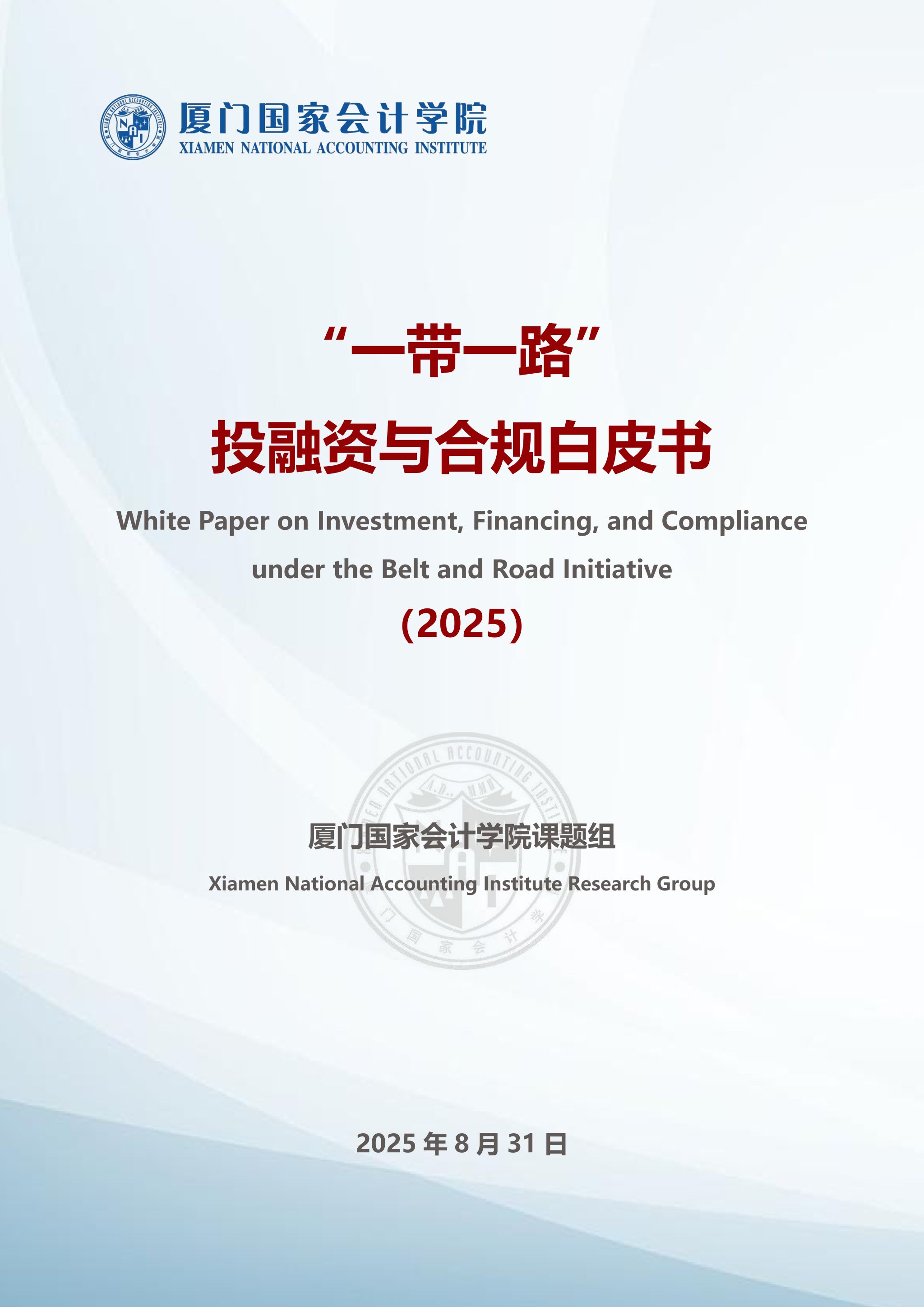Date:2025-09-12
Recently, the 8th Belt and Road High-Quality Development Conference was held in Xiamen, Fujian Province. During the event, Xiamen National Accounting Institute (XNAI) released White Paper on Investment, Financing, and Compliance under the Belt and Road Initiative.
Chen Lifang, Associate Professor at the Research Center for the Belt & Road Financial and Economic Development, Xiamen National Accounting Institute, introduced that the white paper is divided into four sections: Data, Survey, Case Studies, and Policies. It analyzes the systems and overview of Chinese enterprises' cross-border investment and financing from multiple dimensions, as well as the compliance issues and demands they face when expanding overseas. It also compiles multiple positive and negative case studies of corporate overseas compliance. On one hand, this white paper can provide policy guidance for enterprises engaging in overseas investment and offer references for making scientific financing decisions. On the other hand, it helps government departments fully grasp the information and compliance demands related to Chinese enterprises' cross-border investment and financing, providing a data basis for policy formulation.
